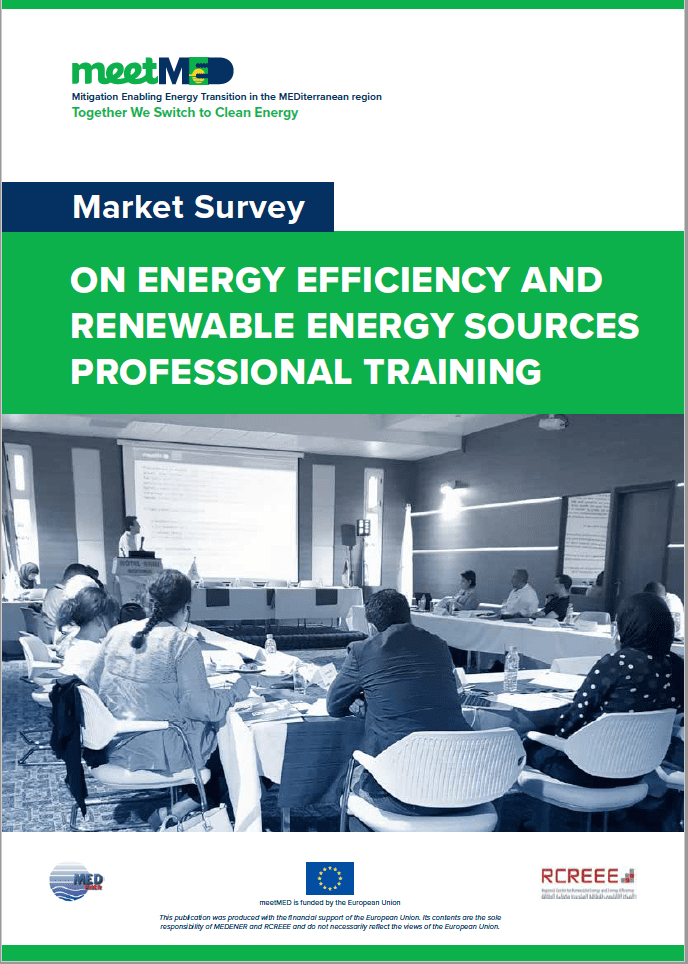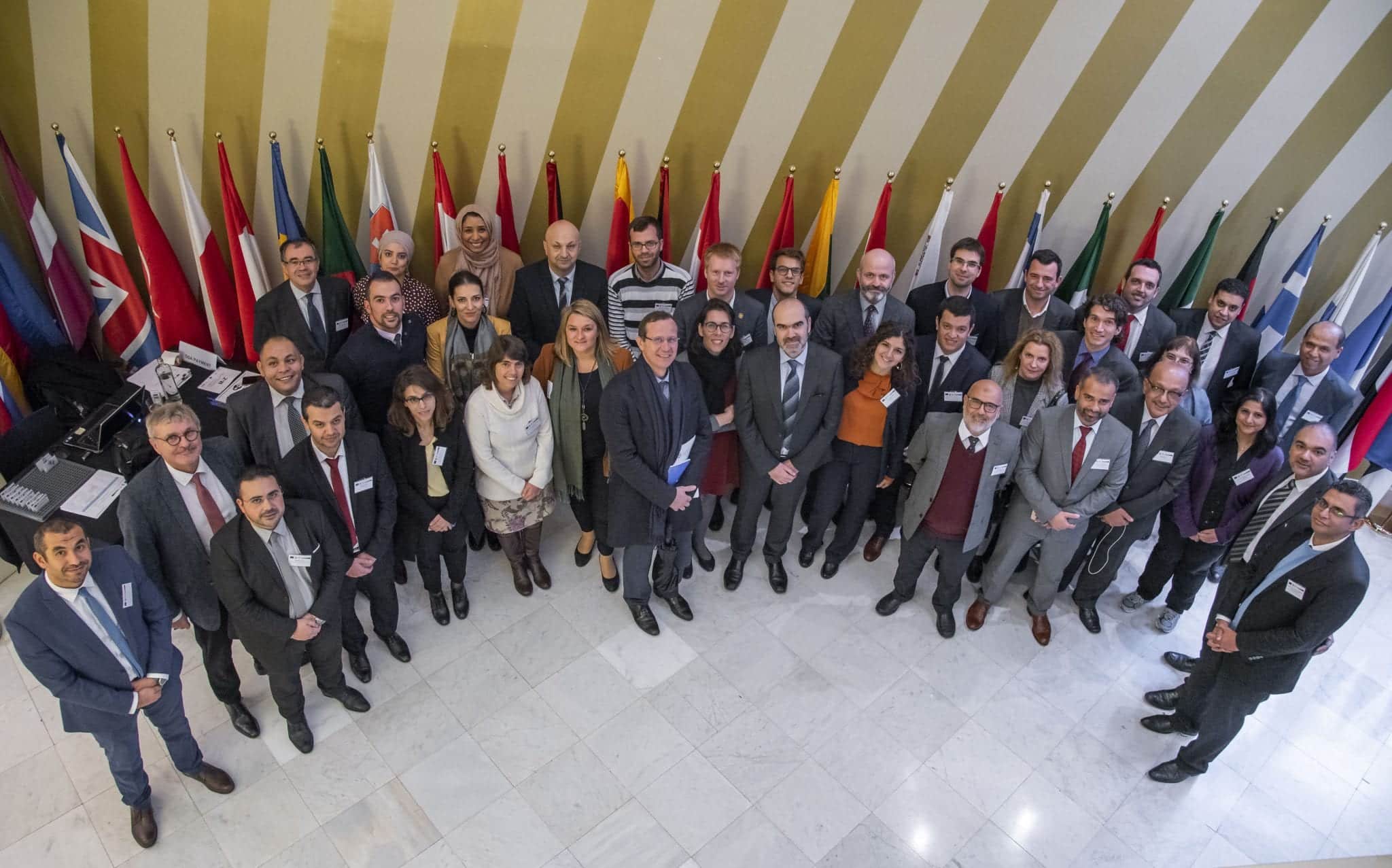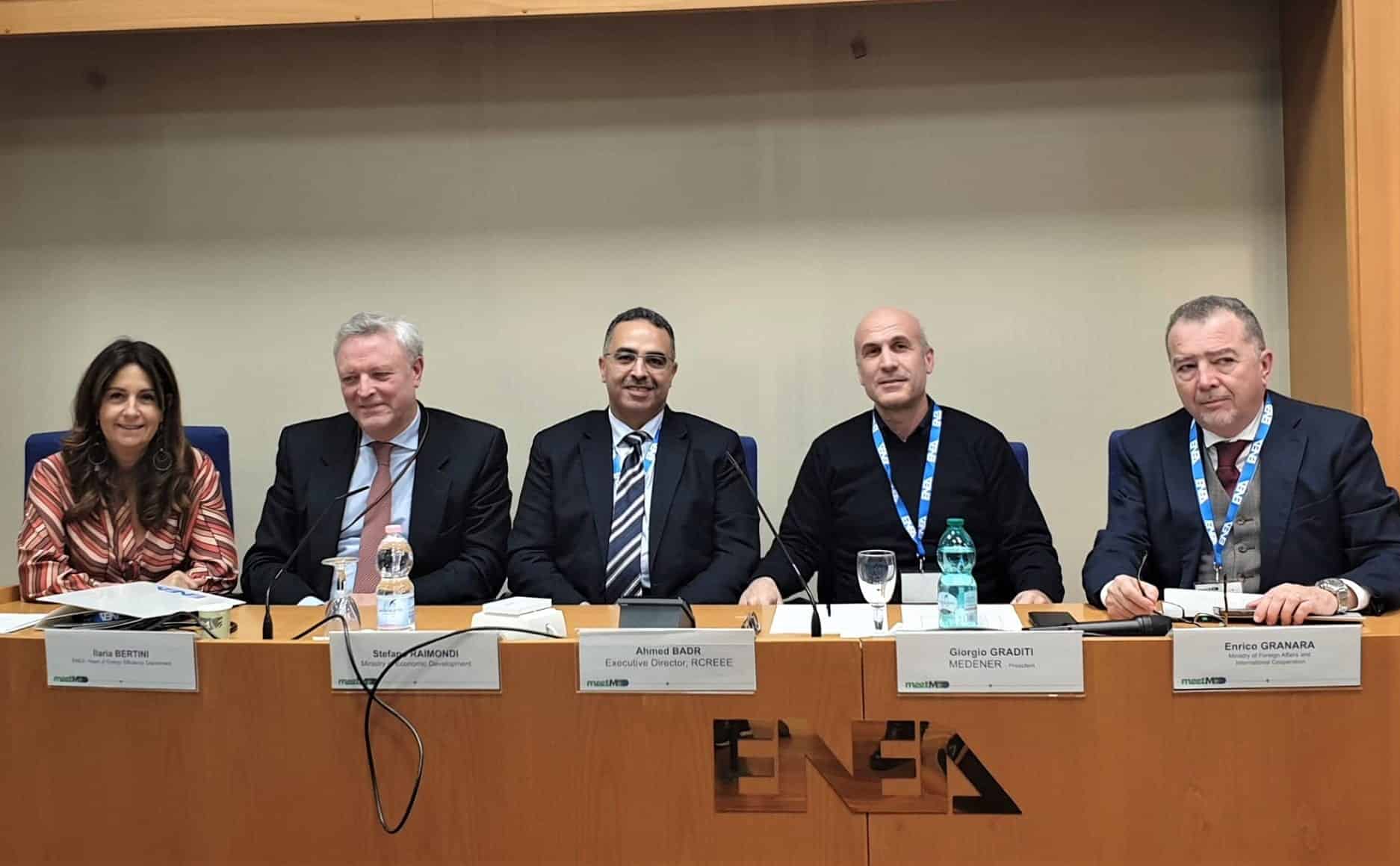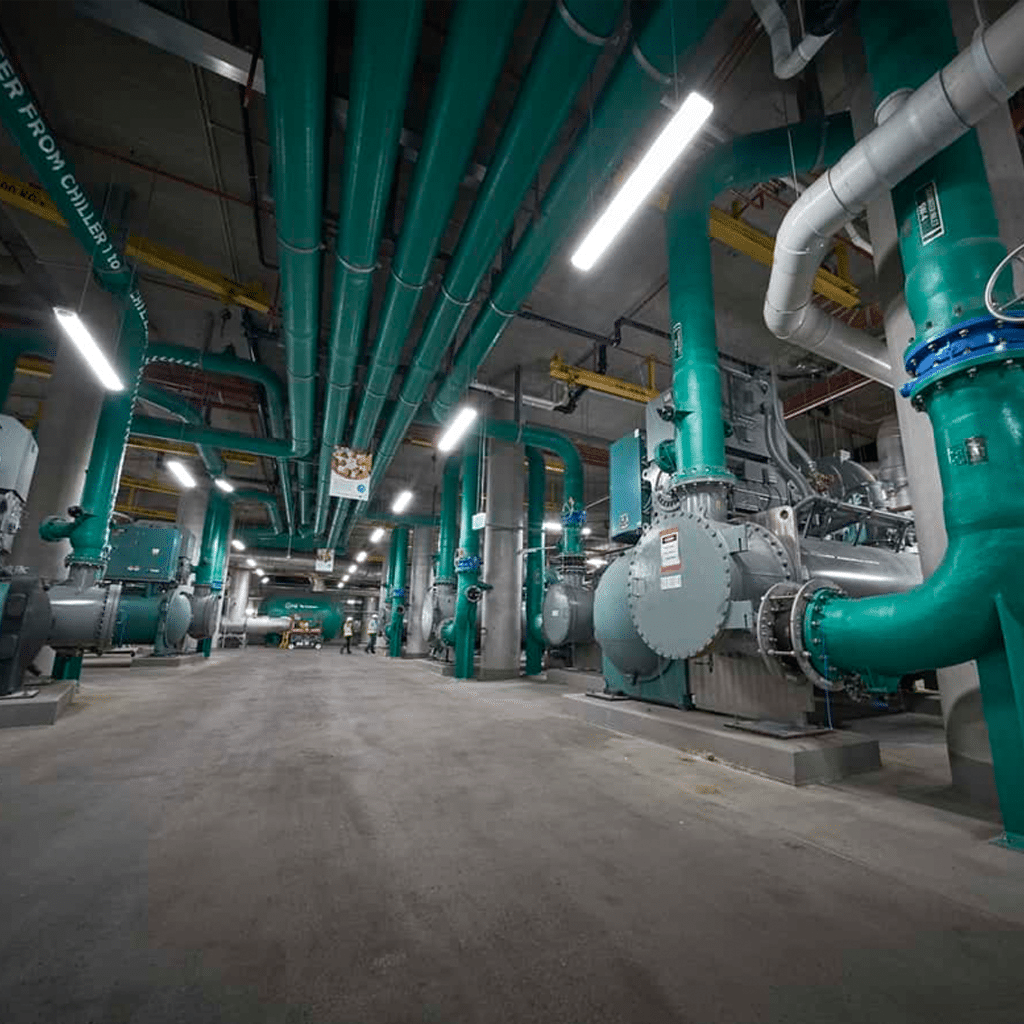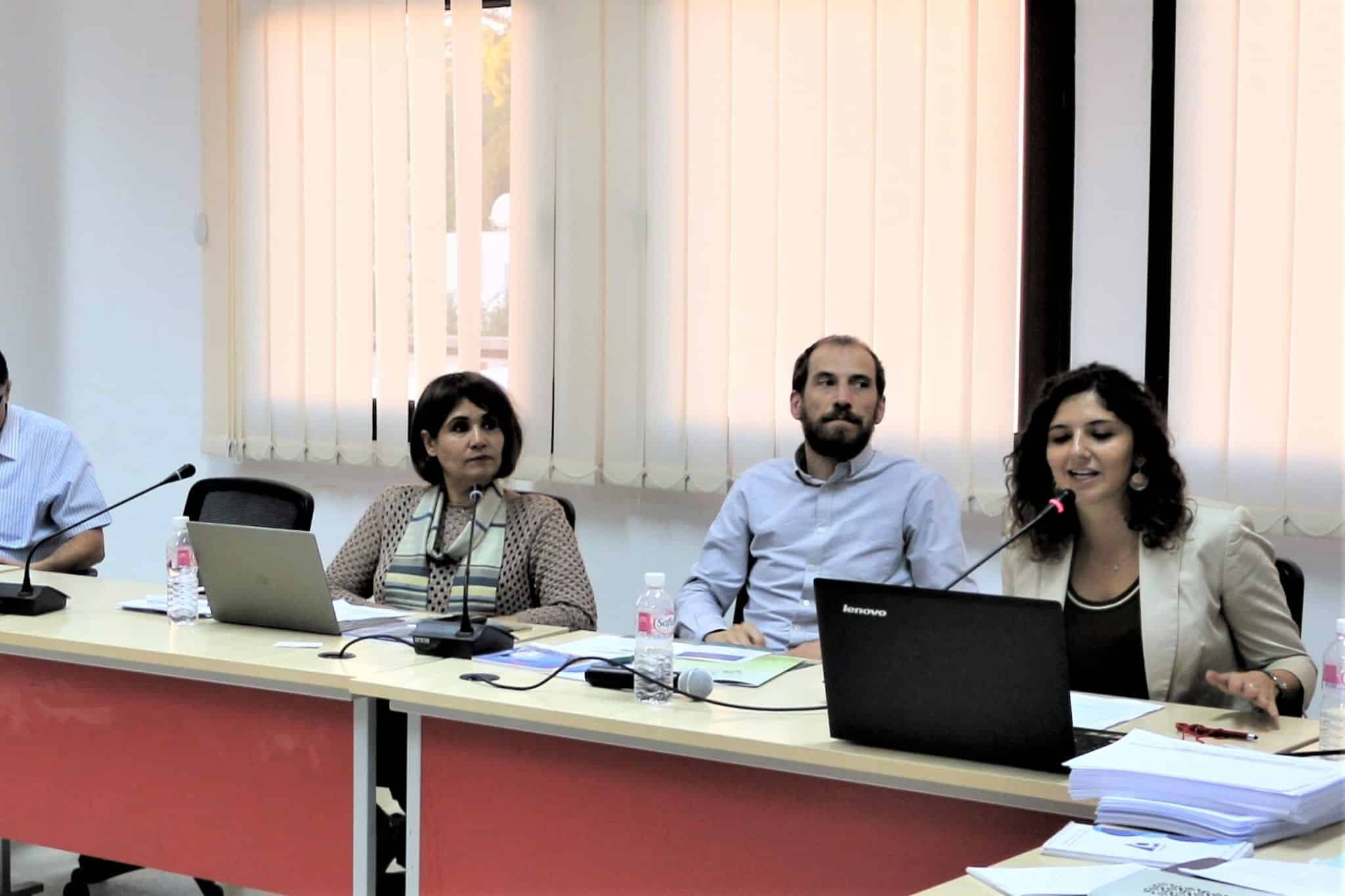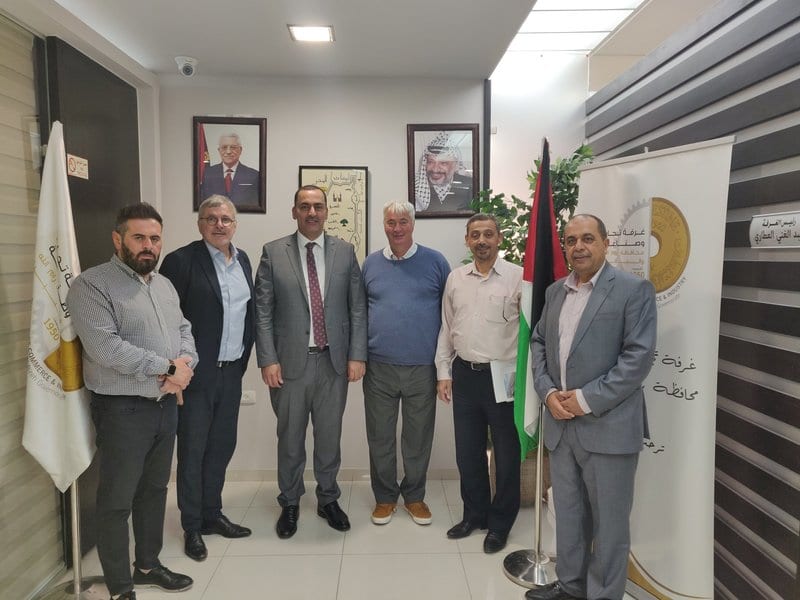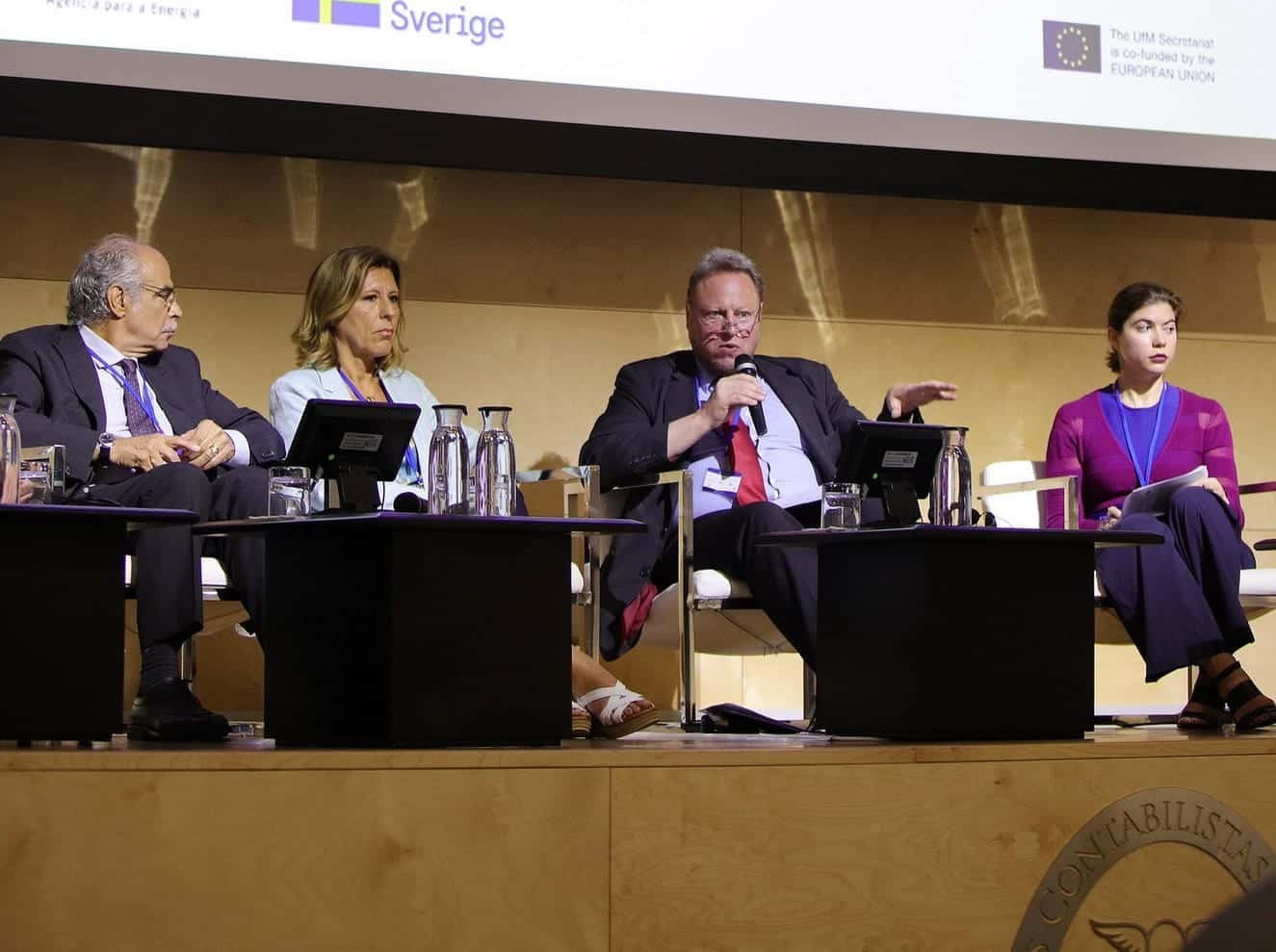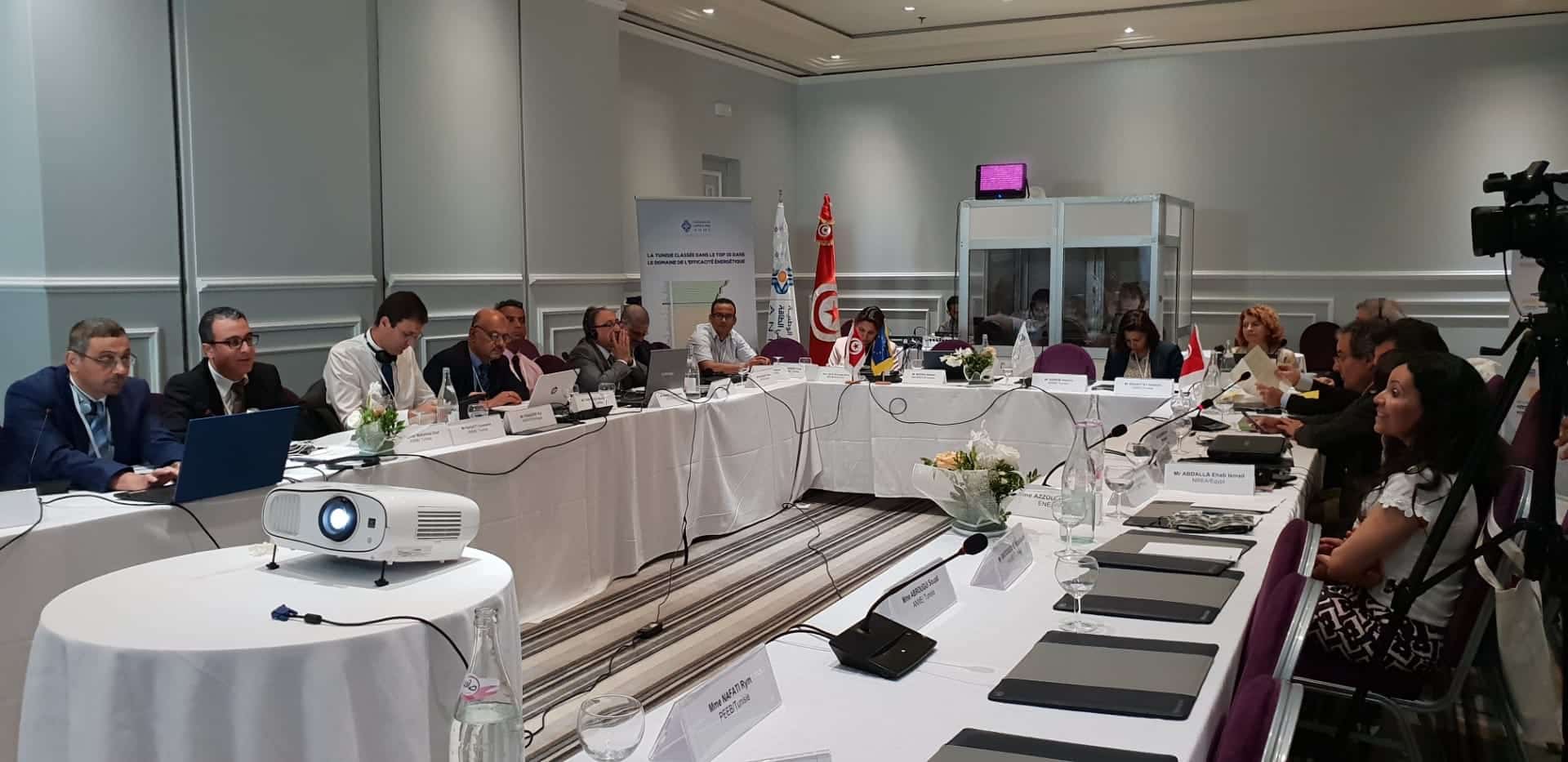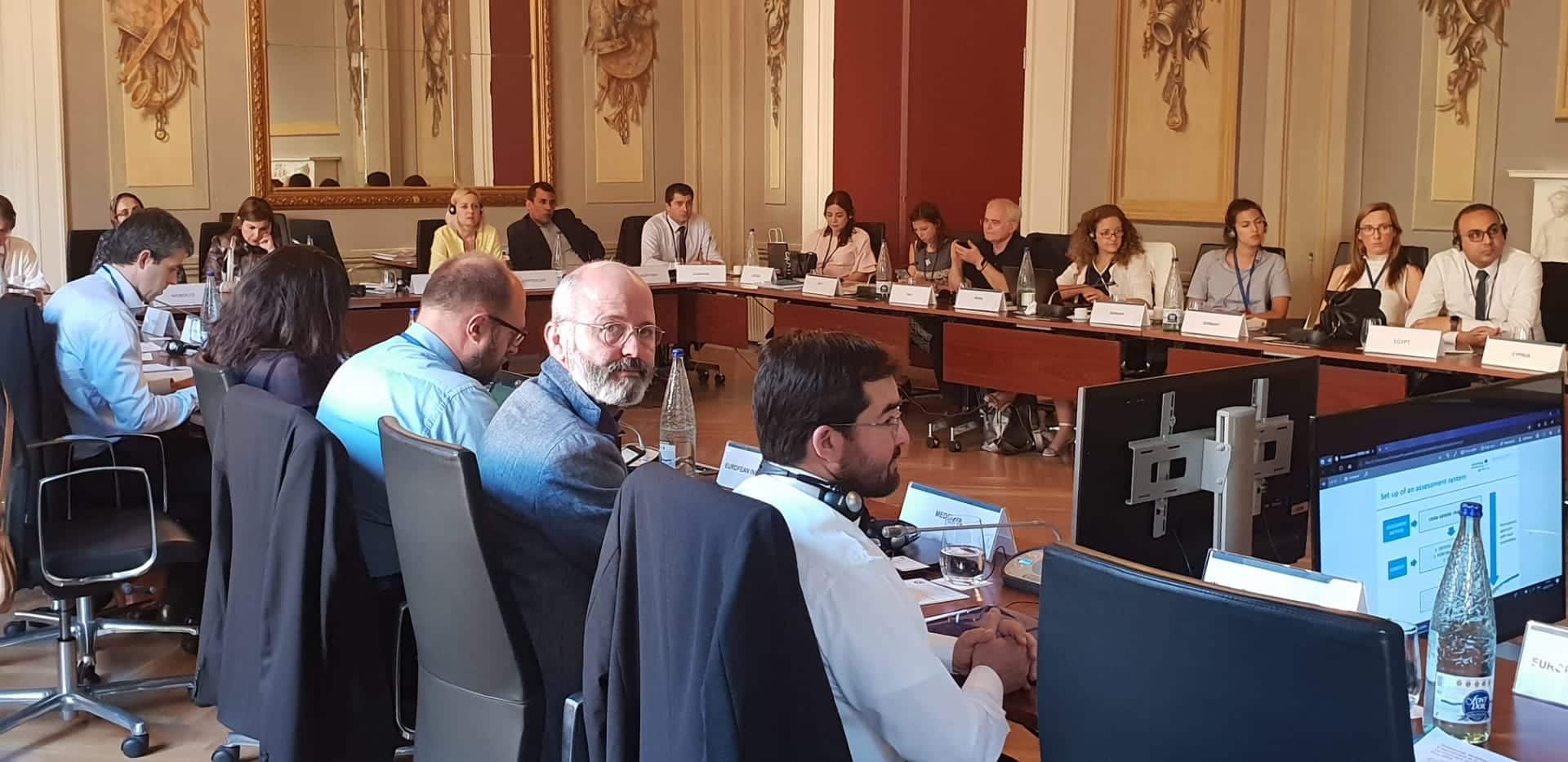The two-days Union for the Mediterranean (UfM) meeting on Sustainability, Energy Efficiency, Climate Change Adaptation and Resilience in Housing took place on 27-28 June 2019 in Barcelona, Spain. The event aimed at identifying essential elements to be incorporated into the Action Plan on Urban Development for 2021-2027, by highlighting opportunities for twinning, capacity building, field visits, and raising awareness on EU calls for funding in the fields of sustainable, energy efficient, low carbon and resilient housing. In addition, its goal was to identify project ideas on sustainable housing that the European Investment Bank (EIB) could consider under its UfM-labelled Urban Projects Finance Initiative-Economic Resilience Initiative (UPFI-ERI), as well as UNIDO under its Sustainable Cities programme, by exploring possibilities for combining grants, loans, guarantees and finance strategies.
In this context, Dr Matteo Barra, meetMED Project Manager, was invited to illustrate the meetMED activities related to energy efficiency in the building sector in order to explore mutually reinforcing synergies and avoid possible duplication of efforts. In the field of energy efficient buildings, meetMED has consolidated its task forces of experts within the broader meetMED Regional Expert Network (meetMED REN), which counts 56 members from 13 countries. The meetMED REN taskforce on EE in buildings met last June in Tunis to discuss the national papers, the regional report (expected in Autumn 2019) and the preliminary conclusions on the institutional, regulatory and policy design. The meetMED REN taskforce on EE and RE monitoring, instead, met in Beirut in March 2019 to update the common monitoring tools in Algeria, Lebanon, Morocco and Tunisia and spread them to Jordan, Egypt and Palestine. The taskforce on EE in appliances, then, will discuss national papers and regional report in Cairo next October 2019. Finally, a meetMED professional training on EE in the building sector will take place in Tunis next January 2020.
Inputs proposed by Dr Barra to the UfM Action Plan for Urban Development (2021-2027) included creating synergies between meetMED activities on EE in the building sector and those of the UfM Working Group (WG) on Sustainable and Affordable Housing. Among others, UfM delegates were invited to join the meetMED taskforces as well as the meetMED professional trainings, so as to ensure a broader geographical impact of the meetMED activities. The institutional link between experts in housing and experts in energy is essential to implement the energy dimension of the urban agenda and, vice versa, the urban dimension of the energy agenda. This could result also in a coordination between the UfM REEE Platform and the UfM WG on Affordable Housing, the involvement of experts from the meetMED taskforce on EE in Buildings, and the support to the national and regional dimensions of the Global Alliance for Buildings and Construction (GABC) and of the Programme for Energy Efficiency in Buildings (PEEB) as incubators of pilot projects in the sector.
The meeting hosted also interventions by GABC, PEEB, EnvirobatBDM, the Barcelona School of Architecture, the World Green Building Council, Housing Europe, UN-Habitat, UNIDO and the European Investment Bank (EIB).
The next meeting of the UfM WG on Sustainable and Affordable Housing will take place in November 2019 whilst the next annual meeting of the UfM Energy Platforms in January 2020, both at the UfM Headquarters in Barcelona.



